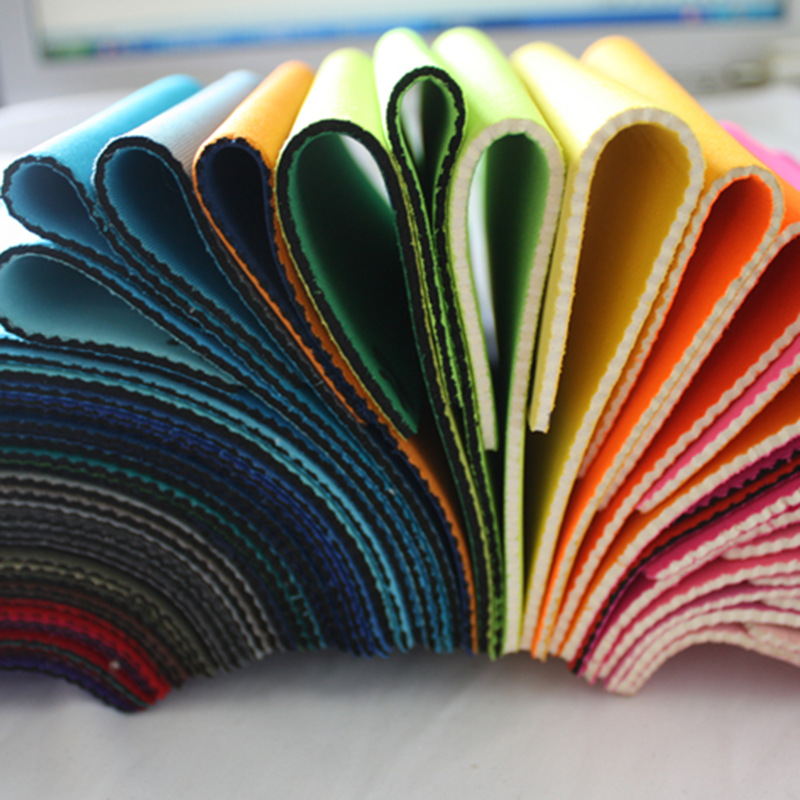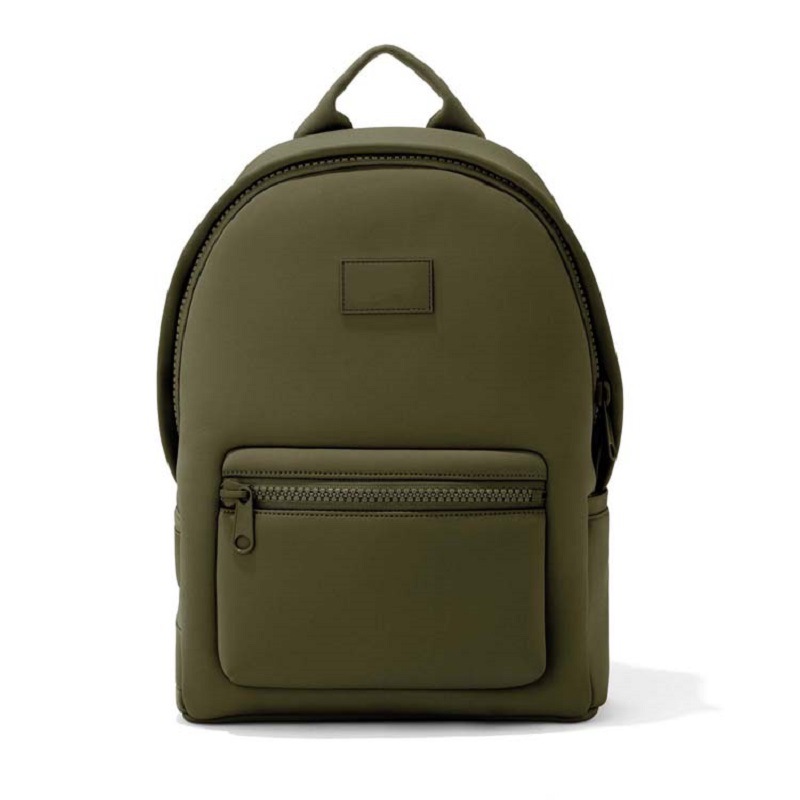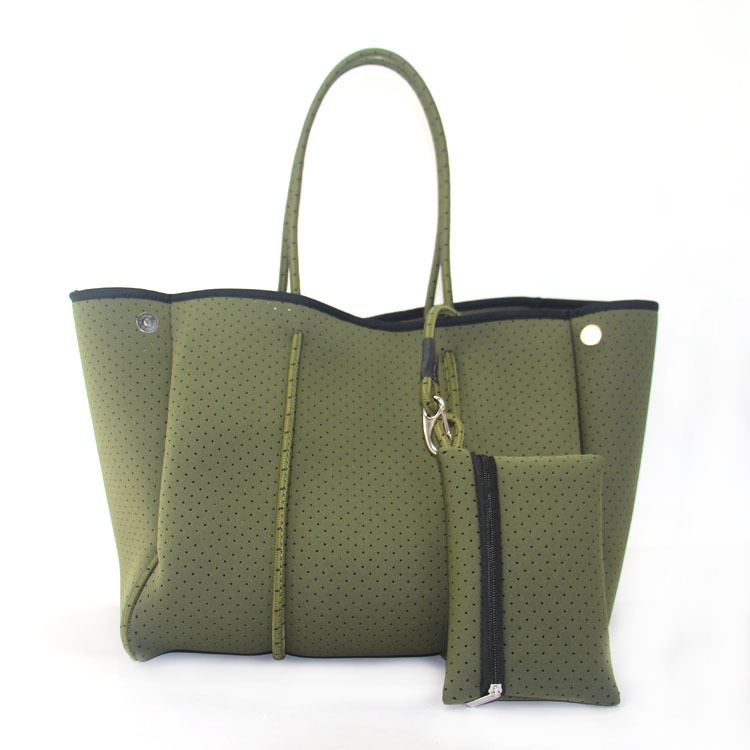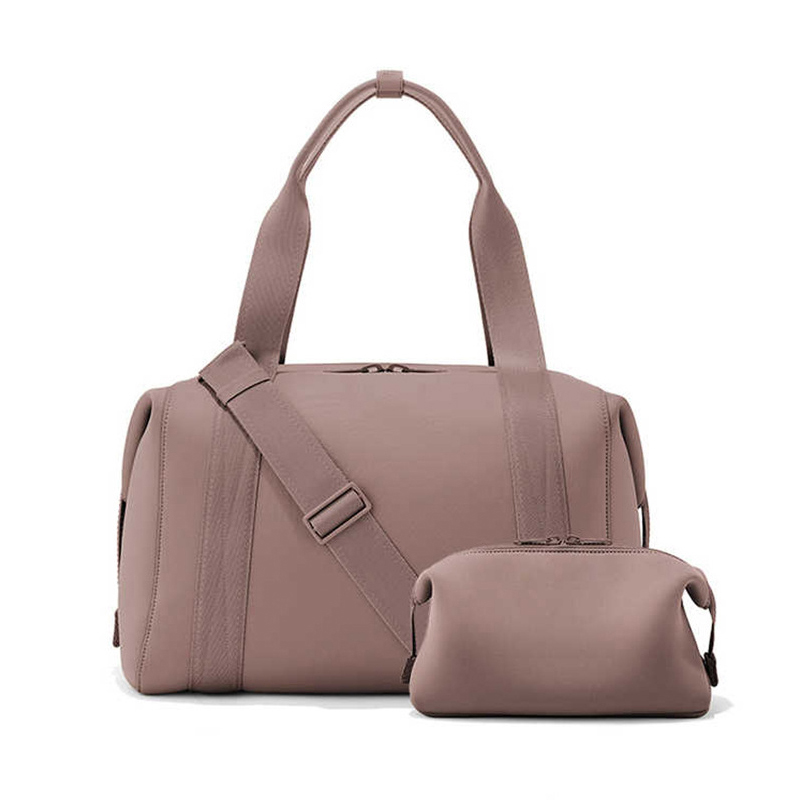Neoprene is a synthetic rubber foam material primarily composed of chloroprene rubber (CR), produced through the emulsion polymerization of chloroprene monomers. Key characteristics include softness, elasticity, shock absorption, thermal insulation, water resistance, and airtightness, making it widely used in wetsuits, sports protective gear, luggage, and industrial applications.

If you want to customize neoprene bags, feel free to contact Momocolor, a professional China bag manufacturer.
Advantages: Shock absorption, heat retention, oil/ozone resistance, and durability;
Limitations: Poor electrical insulation, limited storage stability, and potential discomfort due to low breathability.



Applications:
Wetsuits and sportswear (elasticity and waterproofing);
Luggage, electronics cases (abrasion/impact resistance);
Industrial seals and insulation layers (weather/aging resistance).
Quality Identification:
High-grade neoprene has uniform color (typically black), smooth surface (no bubbles/cracks), strong elasticity, and stretch resistance. Inferior versions appear grayish, coarse, and brittle.
Notes:Some variants may use styrene-butadiene rubber (SBR) or modified formulas, but mainstream neoprene remains CR-based. Its operating temperature range is typically -35°C to 130°C, suitable for diverse environments.

